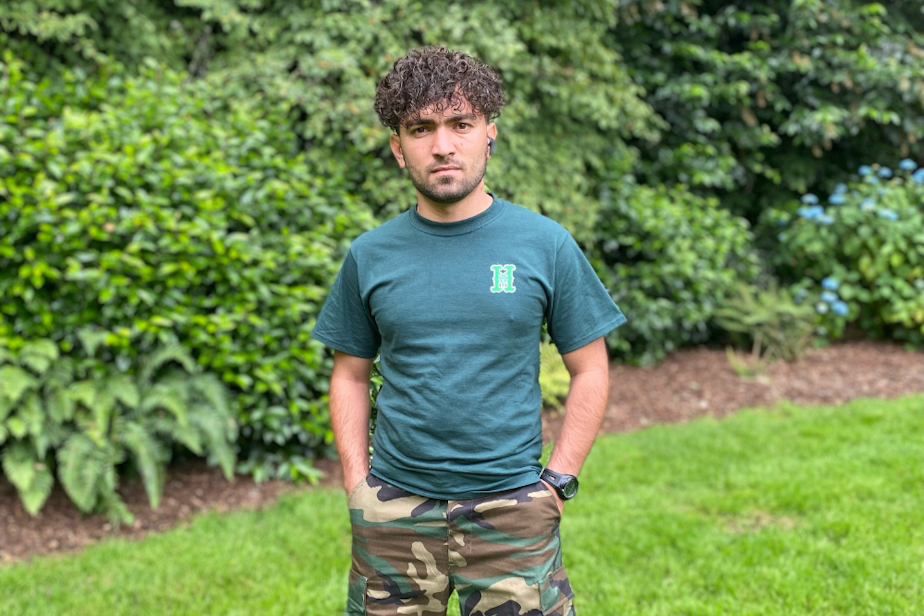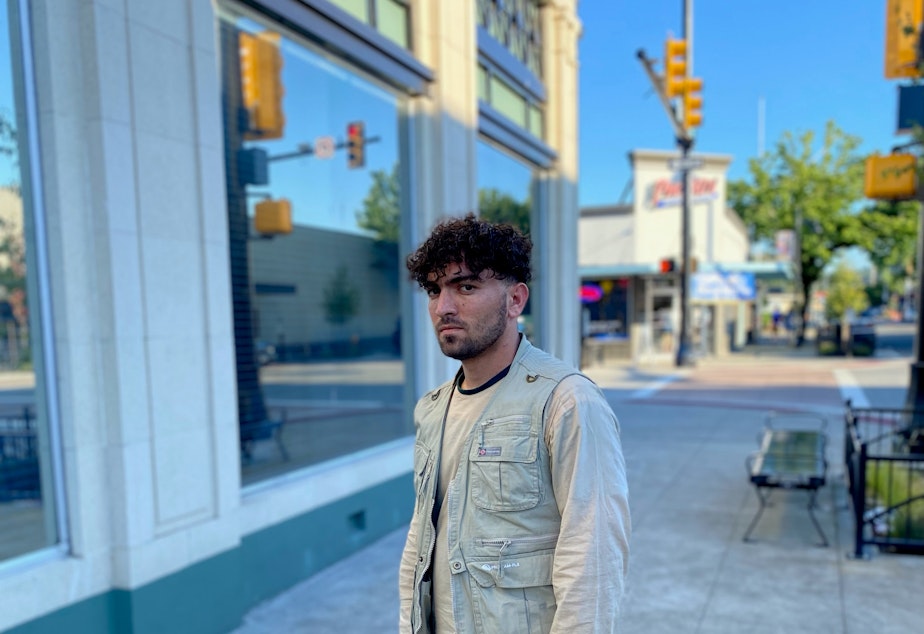Our housemate is an Afghan refugee who fled the Taliban

In August 2021, the United States’ longest standing war came to an end as the U.S. military withdrew from Afghanistan and the Taliban fundamentalist group returned to power. Thousands of Afghan people became refugees and came to the U.S. One of those people is Abdul Nasir.
RadioActive’s Micah Riggio lives with Abdul, and has this story of how his family hosts refugees like Abdul as they begin new lives in Seattle.
[RadioActive Youth Media is KUOW's radio journalism and audio storytelling program for young people. This story was entirely youth-produced, from the writing to the audio editing.]
M
y family has a big house. A couple of years ago, we decided to put our extra room to good use and offer it as a space for immigrants and refugees to stay while they got used to life in the U.S.
Currently, we’re hosting two Afghan men who fought alongside the U.S. military in the war. I spoke with one of them, Abdul Nasir, about his experience.
"When I come in here, a lot of sad," Abdul said. "My father, my mom, my brother — all of my family in Afghanistan. I have a lot of sad because he is not safe in Afghanistan. I come in here, but in here is a lot of sad in the first day."
Sponsored
Abdul's journey from his hometown of Jalalabad to Seattle was a rocky one, including stops in Qatar; Germany; Washington, D.C.; and Florida. All along the way, Abdul was shocked at the differences in tech and culture between these different parts of the world.
"In here is, for me, very amazing," Abdul said. "The Afghanistan is different culture, not a lot of modern technology, but in here is modern technology."
Abdul likes taking the light rail each day, and using ATMs to take out money. But it’s still a struggle.
"You asked me my problem. Big problem in here, a lot of people come in here, not have a green card. A lot of people need it. How can green card this big issues for people?" he said.
Sponsored
Abdul isn’t the only one in this tough situation. Tens of thousands of refugees are arriving in America, facing language and financial barriers and the difficulties of getting permanent housing and legal status.
Now, Abdul works at a hotel, slowly earning enough money for an apartment. Every day when he comes home, he eats dinner with us. I eat with a fork, and Abdul eats with Afghan naan, a specially baked flat bread. Occasionally, our guests share the food of their culture with us.
Sharing your house with people who come from such different backgrounds can be confusing, surprising, or hilarious, but it’s been a great experience for me and my family. And I hope it’s been a great experience for Abdul as well.
This story was produced in a RadioActive Youth Media one-week Intro to Radio Storytelling workshop for high school-age youth. Production assistance by Carlos Nieto-Mosqueda and Charlotte Engrav. Prepared for the web by Leila M'baye.
Find RadioActive on Instagram, Twitter, TikTok, YouTube and Facebook, and on the RadioActive podcast.
Sponsored
Support for KUOW's RadioActive comes from the Bill & Melinda Gates Foundation Discovery Center and BECU.




